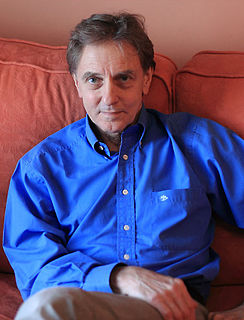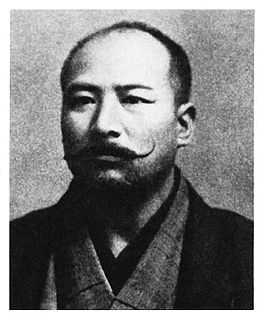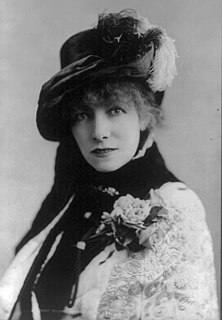Ein Zitat von Colin Blakemore
Der Maler, der die Realität darstellen möchte, muss über seine eigene Wahrnehmung hinausgehen. Er muss die Mechanismen in seinem Kopf, die Objekte aus Bildern (Symbolen) erschaffen, ignorieren oder außer Kraft setzen ... Der Künstler muss wie das Auge wahre Bilder und die Hinweise auf die Entfernung liefern, um seine magischen Lügen zu erzählen.
Verwandte Zitate
Illustrationen haben ebenso viel zu sagen wie der Text. Der Trick besteht darin, dasselbe zu sagen, aber auf eine andere Art und Weise. Es nützt nichts, ein Illustrator zu sein, der viel sagt, was ihm durch den Kopf geht, wenn es nichts mit dem Text zu tun hat. . . Der Künstler muss sich über die Geschichte hinwegsetzen, aber er muss sich auch über sein eigenes Ego hinwegsetzen, um der Geschichte willen.
Für den Fotografen ist es wichtig, die Wirkung seiner Objektive zu kennen. Die Linse ist sein Auge und sie macht oder ruiniert seine Bilder. Ein Gespür für Komposition ist von großem Vorteil. Ich denke, es ist sehr eine Frage des Instinkts. Es kann vielleicht entwickelt werden, aber ich bezweifle, dass es erlernbar ist. Um seine beste Arbeit zu leisten, muss der junge Fotograf herausfinden, was ihn visuell wirklich begeistert. Er muss seine eigene Welt entdecken.
Ich kann keine menschliche Figur zeichnen, wenn ich die Anordnung seiner Knochen, Muskeln oder Sehnen nicht kenne. Das Gleiche gilt, dass ich kein menschliches Gesicht zeichnen kann, wenn ich nicht weiß, was in seinem Kopf und Herzen vorgeht. Um das Leben zu malen, muss man nicht nur die Anatomie verstehen, sondern auch, was Menschen über die Welt, in der sie leben, fühlen und denken. Der Maler, der sein eigenes Handwerk beherrscht und nichts anderes, wird sich als sehr oberflächlicher Künstler erweisen.
Der Judo-Schüler muss daher seinen Geist kultivieren; er darf niemals Angst verspüren, niemals die Beherrschung verlieren, niemals unvorsichtig sein; aber er muss kühl und ruhig sein, darf aber nicht zerstreut sein; er muss den Umständen entsprechend schnell handeln. Außerdem muss er sowohl im Angriff als auch in der Verteidigung geschickt und mutig sein.
Wer in einer aufgeklärten und literarischen Gesellschaft ein großer Dichter werden will, muss zunächst ein kleines Kind werden. Er muss das gesamte Netz seines Geistes in Stücke reißen. Er muss viel von dem Wissen verlernen, das bisher vielleicht seinen Hauptanspruch auf Überlegenheit ausmachte. Seine Talente werden für ihn ein Hindernis sein.
Der Maler, der von der Schönheit der einzelnen Teile einer Landschaft so fasziniert ist, dass er danach strebt, alles darzustellen, kann keinen Erfolg haben. Sein Bild wird eine Anordnung einer Reihe von Porträts von Dingen ohne Einheit sein ... Es muss Vielfalt und Kontrast geben, aber in gemessenen Dosen.
Ein perfekter Historiker muss über eine Vorstellungskraft verfügen, die stark genug ist, um seine Erzählung ergreifend und malerisch zu gestalten. Dennoch muss er es so absolut kontrollieren, dass er sich mit den Materialien, die er findet, begnügt und davon absieht, Mängel durch eigene Zusätze auszugleichen. Er muss ein tiefgründiger und genialer Denker sein; Dennoch muss er über ausreichende Selbstbeherrschung verfügen, um es zu unterlassen, seine Fakten in die Form seiner Hypothese zu überführen.
Die Persönlichkeit des Künstlers muss in seiner Garderobe belassen werden; seine Seele muss von seinen eigenen Empfindungen befreit und mit den niedrigen oder edlen Eigenschaften bekleidet werden, die er zeigen soll ... [Er] muss die Sorgen und Ärgernisse des Lebens hinter sich lassen, seine Persönlichkeit für mehrere Stunden beiseite legen und Bewegen Sie sich in den Traum eines anderen Lebens und vergessen Sie alles.
In gewissem Sinne darf der religiöse Mensch keine wirklichen eigenen Ansichten haben, und es ist tatsächlich anmaßend von ihm, solche zu haben. In Bezug auf sexuelle Liebesbeziehungen, Ehe und Familienbeziehungen, Geschäfte, Politik und praktisch alles andere, was in seinem Leben wichtig ist, muss er versuchen herauszufinden, was sein Gott und sein Klerus von ihm erwarten; und er muss in erster Linie ihren Befehlen gehorchen.
Ein Schauspieler muss das Leben interpretieren und dazu muss er bereit sein, alle Erfahrungen zu akzeptieren, die das Leben zu bieten hat. Tatsächlich muss er mehr vom Leben anstreben, als ihm das Leben zu Füßen legt. In der kurzen Zeitspanne seines Lebens muss ein Schauspieler alles lernen, was es zu wissen gibt, alles erleben, was es zu erleben gibt, oder sich diesem Zustand so nahe wie möglich nähern. Er muss übermenschlich sein in seinen Bemühungen, im Kern seines Unterbewusstseins alles zu speichern, was er zum Ausdruck seiner Kunst verwenden könnte.

































